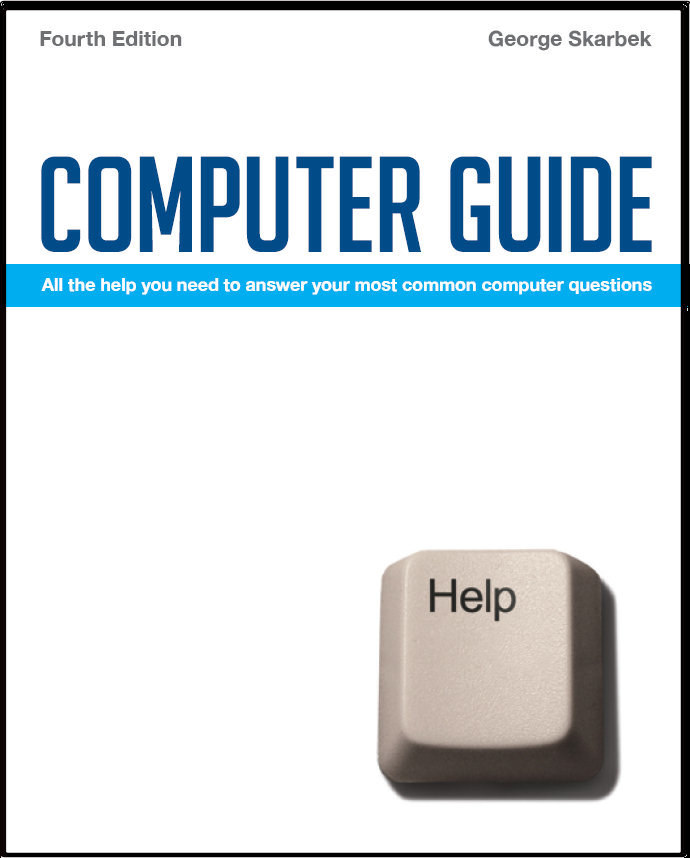

To look at the e-book in PDF format, Computer Guide, based on these columns click here
Stopping junk mail Q: I am being inundated with seemingly unstoppable mail from a source called "truthout''. I have replied to this source many, many times asking to be removed from their address book or "Gotcha" List, but this seems to encourage them to redouble their efforts. I have put them on my blocked senders list but this of course rapidly fills up the deleted items folder. I have also reported them as Spam - to no avail. Is there a method I can use to rid myself of this nuisance? A: The first rule about trying to stop junk mail is not to write to them asking to be removed. In many cases they use a false address so you are wasting your time, but far worse, you have identified yourself as a valid user and they will not only try harder, but can sell your e-mail address to other spammers and you will have more junk mail. There are some reputable subscriptions that will honour your request but you should decide before asking to be un-subscribed. As what you can do now, realistically not much. Just empty the unwanted items from the deleted items folder on a daily or weekly basis. It only takes a couple of clicks and the junk is gone and you never had to look at it. Another option is to use a program such as Mailwasher before downloading your mail to delete these junk messages on the server so that they will not even appear in the deleted items folder.
Un-installing programs Q: Can you delete a program from the Program Files? A: Although it is possible to delete these files this is not the way to un-install a program because this method can leave other files such as DLLs and INIs in various Windows folders, and leave entries in the registry settings etc. The correct way to remove it is from Control Panel, Add/Remove programs. If that program is already deleted then just highlight and delete the unwanted entry.
Removing Excel links Q: Working in an Excel workbook, I have created links from other workbooks to automatically update certain calculations. I no longer need these links and it is a nuisance having to cancel each link requests on loading the workbook. I have not been able to find any way in Excel of deleting these links. Is it possible to delete these links?
Defrag concerns Q: Defragmentation of my C drive is always significantly incomplete, due to some large files which cannot be moved. There is a procedure for dealing with this, but it looks complicated and dangerous. Is there a magic bullet available that would deal with this in a semi-automated, safe, reliable way, and allow the C drive to then fully defragment? A: My initial comment is not to worry if some files remain fragmented as in almost all cases you will not see a difference even when using a stopwatch. There are usually a few files that will not be defragmented in some cases. When your disk is reasonably full then this number will increase noticeably. Look at the files that still have some fragmentation. If they are files that you are not likely to use very often then it will not make any difference to normal performance. One example may be the System Restore files. Unless you are performing the very frequent system restores, no time is being lost. Disk defragmentation is mainly used to improve performance. Let us do an example of an important file, say your mail, has 10 fragments. Then assuming that you have an old and slow hard disk that has an average seek time to 10 ms (mill-seconds). Therefore to read in the entire file will take 10 x 10 ms which equals 100 ms or one tenth of a second which is about the limit someone with fast reflexes can measure. However, opening your mail will not be delayed by one tenth of a second as the mail will start being displayed while the remainder of the files are being read. Your delay will be a lot less than one tenth of a second. Furthermore, if you close your mail program and then open it later there is a high probability that the caching software will be able to restore it from RAM rather than from disk. This is about 1000 times faster then reading it from the hard disk. For normal use I recommend that you defragment every couple of months or so and don’t worry too much about the odd fragments. Even spending a few seconds looking into this matter is unlikely to be recouped unless your disk is very badly fragmented. However there is one other good reason for having fewer fragments and this is that in case of hard disk failure where it is easier to recover files from a cleaner hard disk.
|